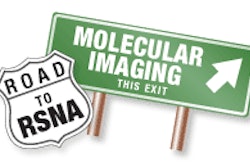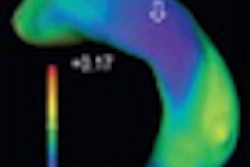Wednesday, December 1 | 11:00 a.m.-11:10 a.m. | SSK13-04 | Room S505AB
Researchers in Brazil have found that PET/CT can be a useful clinical tool for detecting unknown and early-stage cancer sites in high-risk asymptomatic patients with Li-Fraumeni syndrome (LFS).People with Li-Fraumeni syndrome, which is associated with genetic mutations, have a 50% risk of developing tumors before the age of 40. Traditionally, healthcare providers have used mammography, breast MR, and colonoscopy to screen for early tumor detection in LFS patients.
In this study, FDG-PET/CT was performed in 25 asymptomatic LFS patients 90 minutes after intravenous injection of 0.154 mCi/kg of FDG on a dedicated PET/CT system. Abnormal areas of FDG uptake were clinically investigated and treated.
"We started it with the detection of a genetic mutation that was followed by clinical classification of patients into a high-risk group, and to them, we applied a very sensitive whole-body cancer-detection test," said clinical oncologist and study co-author Sonia Tereza Nogueira, MD, from Hospital A.C. Camargo-Fundação Antônio Prudente in São Paulo. "This approach resulted in unsuspected early cancer detection and treatment, and perhaps this combined use could be applied in other instances to improve cancer treatment results."
FDG-PET/CT was able to detect hidden cancer in 12% of the patients in this group, which would allow for better treatment and outcome.
"We suggest that F-18 FDG-PET/CT is potentially effective to early diagnosis of tumors in asymptomatic LFS patients," added Nogueira, who is scheduled to present the study results in Chicago.




















